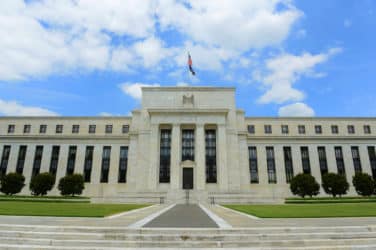A line in the 1973 song Lord Mr. Ford goes, “All the cars placed end to end would reach to the moon and back again, and there’d probably be some fool pull out to pass.”
Such is the delicate balance of global finance and economics that if somebody wheels out of line like the UK did from the European Union in June, a pileup ensues.
We should wonder why everything is so fragile, including the stock market, which first reacted with horror before shrugging it off. After all, humans were engaged in commerce long before bureaucratic bodies decreed a need for pacts. To contend that global trade will suffer setbacks if the UK leaves the EU is like saying every pro athlete must have the same agent.
There must be something else here. Sherlock Holmes, that fictional feature of Scotsman Arthur Conan Doyle’s imagination, said that after eliminating the impossible, what remains, no matter how implausible, is the answer. The market has devolved into a series of reactions to expectations versus outcomes (never more apparent than here during earnings season). No wonder. So have political and monetary policies.
Ever got a credit card with a teaser rate? The low promotional cost is intended to prompt a reaction from you. The card company wants consumption to follow. Who benefits? You could say, “I got some stuff I wouldn’t otherwise be able to afford.”
True enough. But should you buy things on credit you can’t afford, and if you do, would you expect to be more prosperous as a result or less so? The beneficiary is the credit-card company, which hopes to drive revenue in the present through transactions, and revenue in the future when interest rates normalize.
Central banks since 2009 have been engaged in a grand teaser-rate experiment. In effect the Federal Reserve, which meets Jul 26-27, and others offered the planet a low introductory rate. Who benefits? We humans got stuff we couldn’t otherwise afford such as mortgages (bought by the Fed to boot), new cars and refrigerators. But does spending borrowed money lead to future prosperity?
If you’ve ever had a financial planner or a grandparent, you know that the secret to future prosperity is the exact opposite – saving money now instead of spending it.
What I would like to know, Janet Yellen, Larry Summers, Austan Goolsbee, Greg Ip, Steve Liesman, Jon Hilsenrath and the rest of you super-smart economists is if we know that saving today is the key to future prosperity, why are you supporting monetary policy that encourages spending now for future prosperity? Both things can’t be true.
We’re all waiting for the impossible. If we’ve had a low introductory rate for seven years prompting everyone from companies to consumers to spend and borrow today, how could it be true that normalizing rates would promote economic growth?
The problem, however, isn’t normal rates but the original policy of years-long teasers getting people to spend. It’s why everything is so fragile. Markets and economies are perched on a temporary condition: An introductory rate.
Who in our analogy is the credit-card company benefiting from our spending? Governments. They measure consumption – spending – as economic growth. If there is economic growth, governments can claim to have solved problems and then can continue to promise citizens more stuff in the future. This way they stay in charge and get everybody doing the same things.
The Brexit was a crack in this grand teaser-rate plan because it shakes up efforts to get everybody doing the same things. Beneath that is the uncomfortable fact that teaser rates promoting spending do not create actual growth and will not produce prosperity. Yet the savings and thrift that do are not only discouraged but inhibited.
If we’ve all figured that out, expect a rough time in coming months for stocks because the truth at first hurts. If we haven’t, then the implausible will continue until it becomes impossible. Or somebody else wheels out of line.
Tim Quast is founder and President of market structure analytics firm Modern Networks IR LLC in Denver






